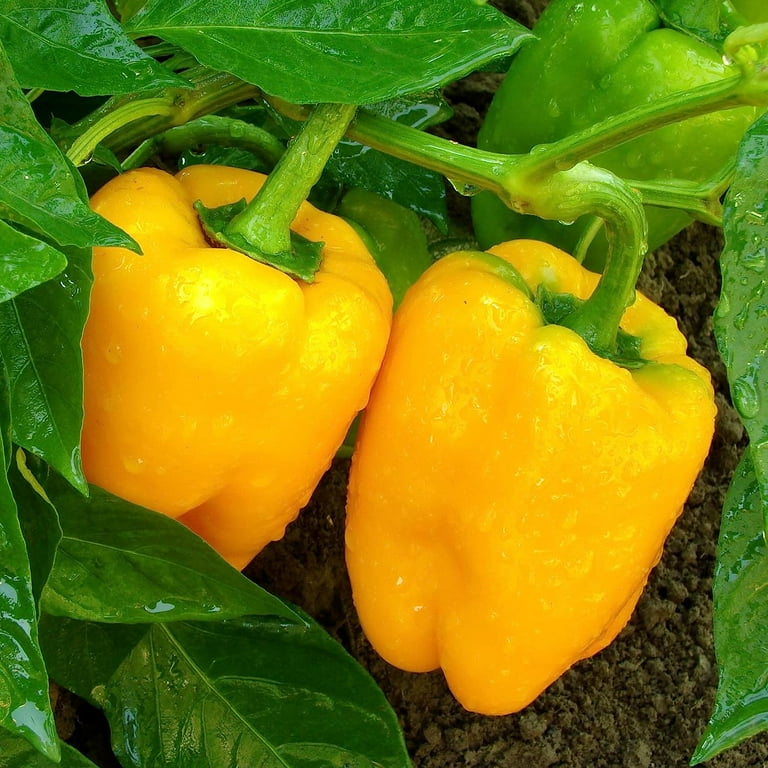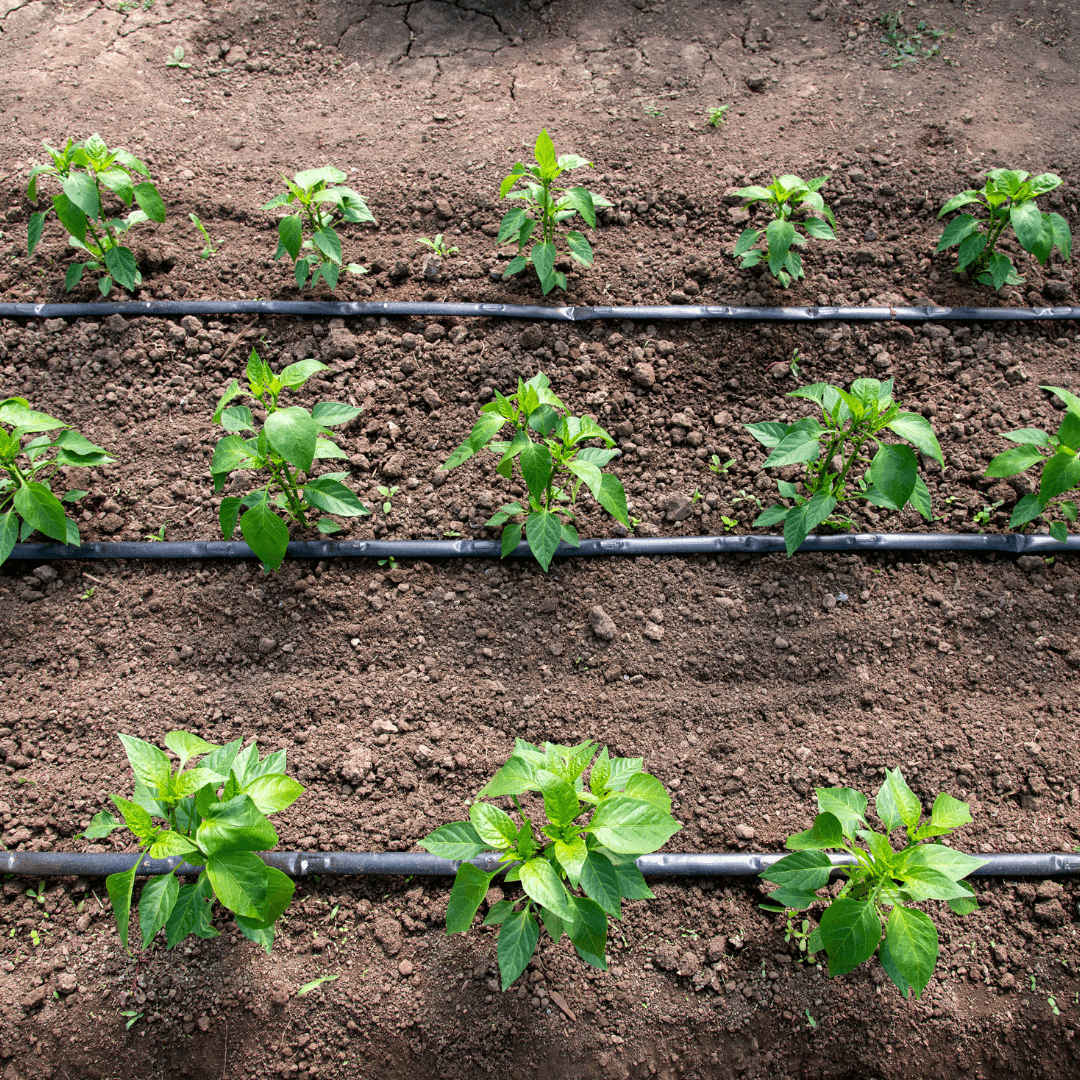Find Out the Best Fertilizers for Peppers: Top Picks for Optimal Development
Find Out the Best Fertilizers for Peppers: Top Picks for Optimal Development
Blog Article
Organic Vs. Synthetic Fertilizers: Which Is Best for Supporting Healthy And Balanced Pepper Plants?
In the realm of supporting healthy and balanced pepper plants, the choice between natural and artificial plant foods stands as an essential decision with far-ranging implications. While both choices goal to offer vital nutrients to support plant growth, the nuances of their effect on the soil, plant health, and the environment spark a discussion that mirrors throughout the horticulture area. Recognizing the distinct benefits and potential risks of each plant food kind is essential for pepper cultivators looking for to optimize their yields while maintaining a sustainable and eco-conscious strategy.
Benefits of Organic Fertilizers
Organic fertilizers offer a sustainable and environmentally-friendly strategy to beneficial pepper plants, offering necessary nutrients without making use of synthetic chemicals. These natural plant foods are originated from natural sources such as compost, manure, bone dish, and seaweed, advertising dirt health and wellness and biodiversity. Unlike artificial plant foods, natural choices launch nutrients slowly, making sure a well balanced and stable supply for pepper plants to prosper.
One significant advantage of organic plant foods is their ability to improve dirt structure and water retention. By improving dirt health, organic fertilizers promote valuable microbial task, which aids in nutrient uptake by pepper plants. Additionally, organic plant foods reduce the risk of chemical run-off, shielding water resources from air pollution and safeguarding the setting.
Additionally, organic plant foods add to long-term dirt fertility by promoting the growth of useful soil organisms. These microorganisms aid damage down organic issue, releasing nutrients in a form that is conveniently obtainable to pepper plants. best fertilizers for peppers. By cultivating a healthy soil environment, natural plant foods support lasting pepper farming techniques that profit both plants and the atmosphere
Downsides of Artificial Plant Foods
Artificial plant foods, in contrast to their natural counterparts, present various disadvantages when used to nourish pepper plants, affecting both plant health and ecological sustainability. One major disadvantage of artificial plant foods is their tendency to leach nutrients from the soil promptly.
Moreover, the overuse of artificial plant foods can add to water pollution. Excess fertilizers not absorbed by plants can get rid of right into water bodies, bring about eutrophication, where algae flowers diminish oxygen degrees in the water, hurting water life. Additionally, synthetic fertilizers are commonly stemmed from non-renewable sources, such as nonrenewable fuel sources, adding to carbon discharges and environmental destruction during their production.
Nutrient Absorption Contrast
Effective nutrient absorption plays a crucial duty in the total health and wellness and growth of pepper plants. When comparing natural and artificial fertilizers in terms of nutrient absorption, natural plant foods have the advantage of offering a much more balanced and slow-release source of nutrients (best fertilizers for peppers). Organic fertilizers consist of a variety of macro and trace elements that are not only advantageous for the plants but likewise promote healthy soil microbial task, which assists in nutrient uptake. On the various other hand, artificial fertilizers typically offer a quick release of nutrients, which can result in seeping and runoff, resulting in lower nutrient absorption rates by the plants.
Moreover, natural fertilizers enhance dirt structure and water retention capability, permitting pepper plants to accessibility nutrients extra successfully. This better dirt high quality facilitates origin advancement, enabling far better nutrient absorption. Synthetic fertilizers, although initially improving plant development as a result of their high nutrient focus, may prevent long-lasting nutrient absorption by degrading soil health and wellness gradually.
Environmental Impact Factors To Consider

On the various other hand, artificial plant foods, although often more focused and right away available to plants, can have destructive effects on the environment if not used correctly (best fertilizers for peppers). Their production requires high energy inputs, causing greenhouse gas discharges and contributing to climate modification. The overflow of excess artificial fertilizers can infect water sources, leading to eutrophication and hurting marine environments.
Best Plant Food Practices for Peppers
When feeding helpful resources pepper plants, optimizing nutrient uptake and decreasing environmental effect are essential factors to consider. To attain this, it is vital to comply with best fertilizer techniques customized to the specific needs of pepper plants. One critical technique is to perform a soil test before using any kind of fertilizers. This examination can identify the pH degree of the dirt and determine any type of nutrient shortages, leading you in picking the most ideal fertilizer solution.
Another vital technique is to feed pepper plants at the correct time. Typically, peppers profit from getting plant food at planting and after that once more when they begin to flower. Over-fertilizing can cause nutrition inequalities and damage the plants, so it is vital to follow recommended application rates.
Additionally, choosing a well balanced plant food with an NPK proportion that suits pepper plants' demands is essential. Organic fertilizers, such as compost or manure, can be excellent choices as they launch nutrients gradually and improve soil structure over time. However, artificial fertilizers can supply a quick nutrient increase when needed. Inevitably, incorporating synthetic and natural fertilizers judiciously can help nurture healthy and Home Page balanced pepper plants while reducing environmental influence.
Verdict

Organic plant foods use a sustainable and environmentally-friendly technique to nourishing pepper plants, offering crucial nutrients without the use of artificial chemicals. Unlike synthetic fertilizers, organic options release nutrients gradually, ensuring a well balanced and stable supply for pepper plants to prosper.
Synthetic plant foods, in comparison to their organic counterparts, present various disadvantages when used to nourish pepper plants, affecting both plant health and environmental sustainability. When contrasting synthetic and natural plant foods in terms of nutrient absorption, natural plant foods have the benefit of providing an extra balanced and slow-release resource of nutrients.Moreover, natural fertilizers improve soil framework and water retention ability, this enabling pepper plants to gain access to nutrients a lot more successfully.
Report this page